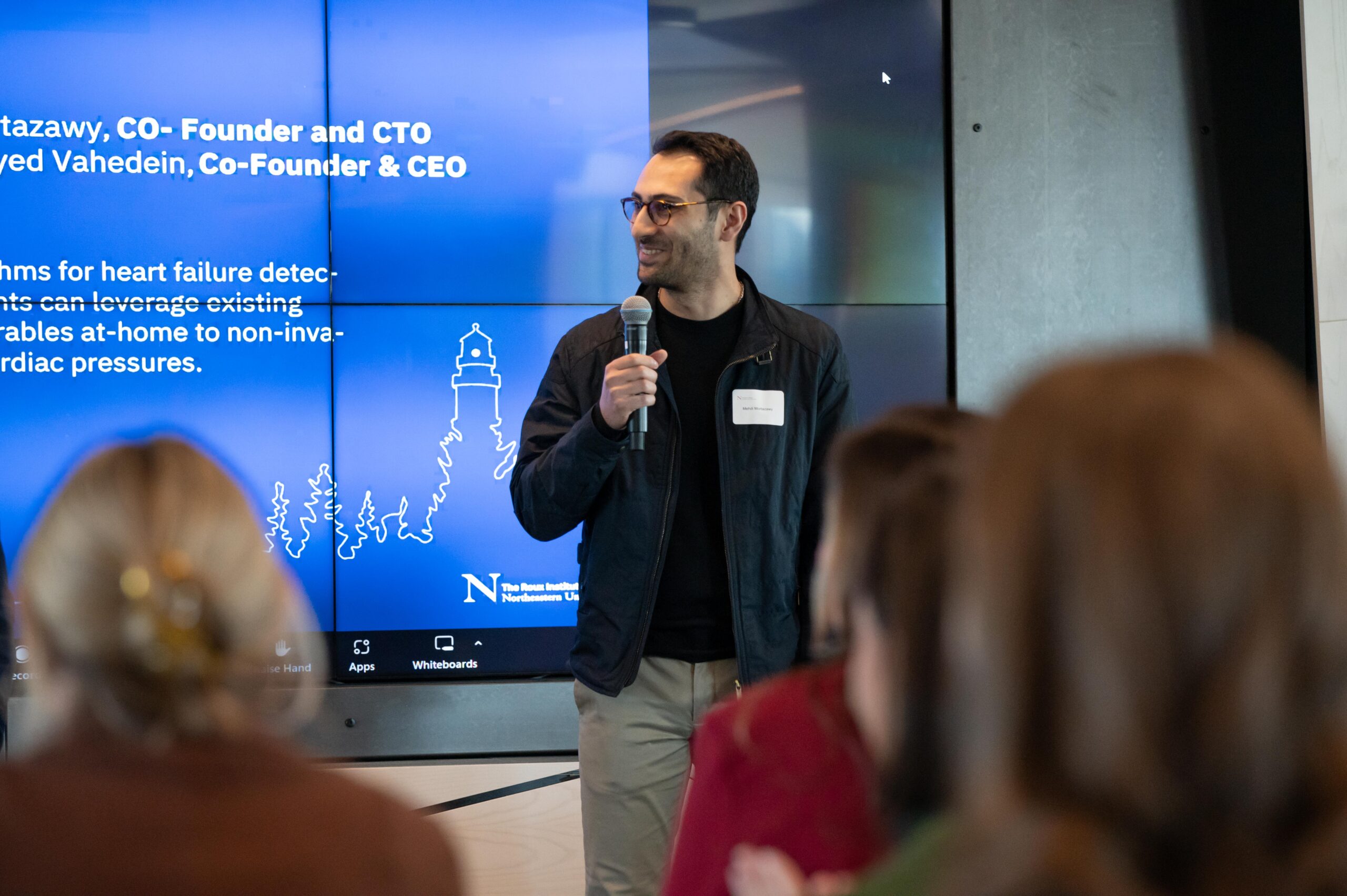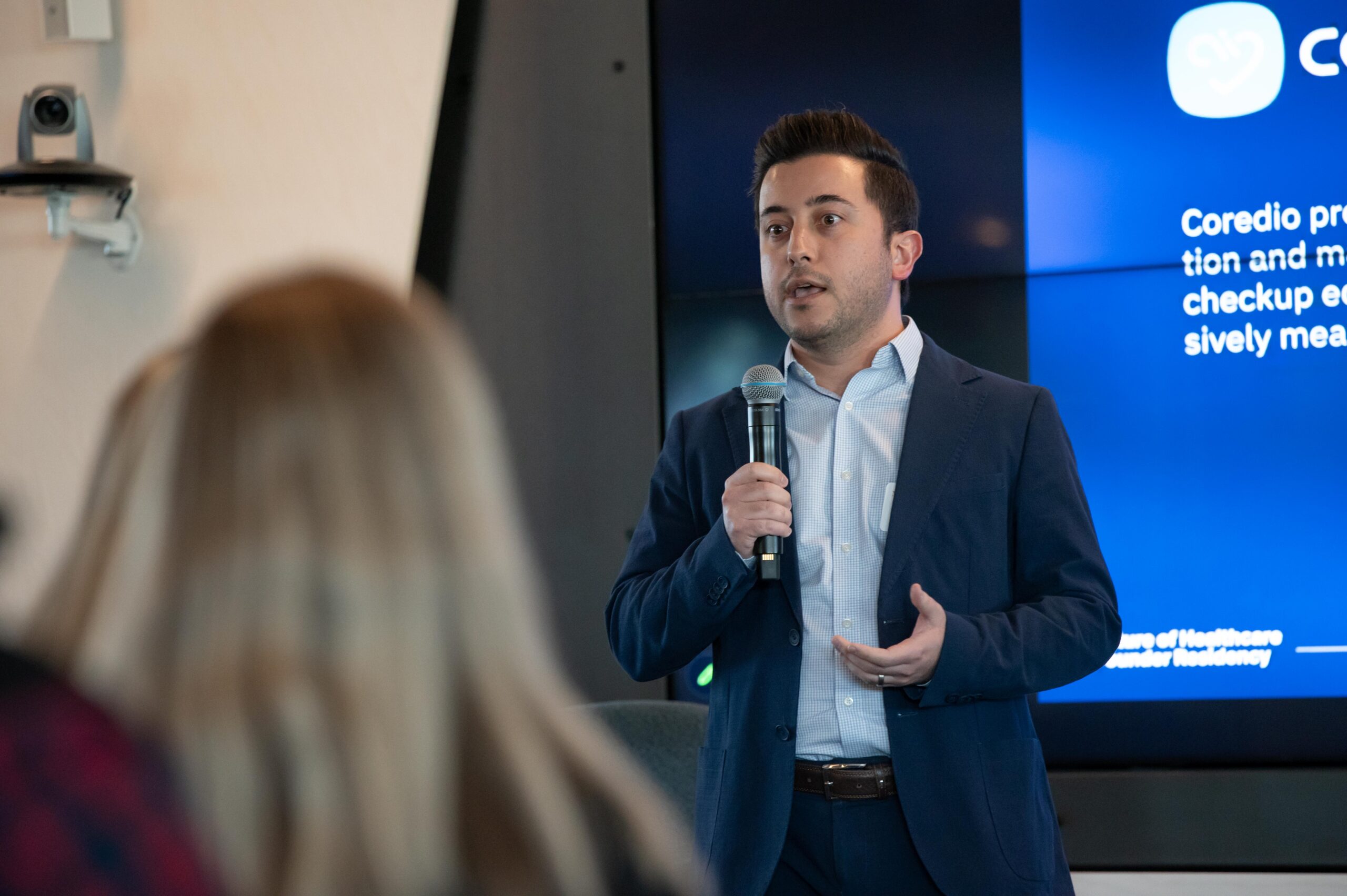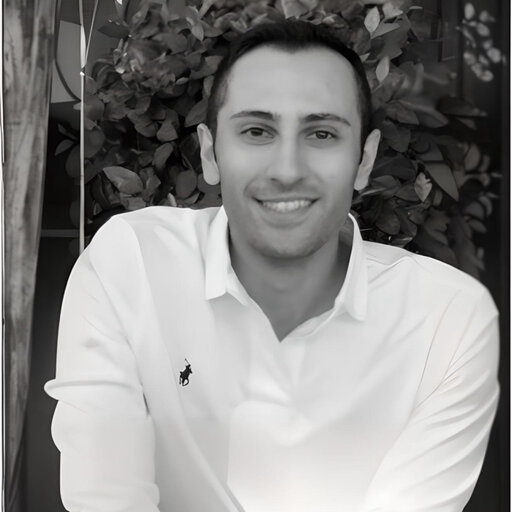
Startup's Non-Invasive Heart Monitoring Technology Seeks FDA Breakthrough Status with Support from Roux Institute Mentor
For Mehdi, co-founder of Coredio, transforming critical cardiac care started with a simple idea: what if doctors could monitor heart failure patients’ vital cardiac metrics without invasive procedures? Today, with support from the Roux Institute’s regulatory experts, that idea is closer to reaching patients who need it most.
Coredio has developed a novel Cardiac Performance Simulation (CPS™) software platform that uses patented technology and leverages existing wearables to provide cardiologists with real-time cardiac output and intracardiac blood pressure measurements – data traditionally only available through invasive catheterization procedures. The technology creates a personalized digital twin calibration that enables ongoing monitoring after patients are discharged, helping doctors adjust medications and intervene early to improve patient outcomes and prevent readmissions.
“At Coredio, we’re building something that could fundamentally change how we monitor heart failure patients,” Mehdi explains. “Our CPS™platform takes routine measurements and provides catheterization lab-level information, allowing doctors to track patients’ conditions from home.”

The startup’s innovative approach caught the attention of Dave Shoemaker, PhD, a regulatory expert and mentor at the Roux Institute. With 21 years of active duty experience helping develop medical products for the U.S. Army and a year embedded at the FDA, Shoemaker recognized both the technology’s potential impact and the importance of pursuing the right regulatory strategy.
“The Coredio team has a very interesting product that gets estimates of critical cardiac parameters non-invasively,” Shoemaker says. “Right now, the gold standard requires an invasive procedure. We believe it’s potentially going to meet the FDA breakthrough designation criteria, simply because it’s non-invasive and provides those critical measurements in a new way.”
Working closely with Shoemaker and additional regulatory experts offered from the Roux Institute, Coredio spent months preparing their breakthrough designation application. The designation, if granted, would provide prioritized review and enhanced communication channels with the FDA, potentially accelerating their path to market.
“Through the Roux Institute’s Future of Healthcare Founder Residency, we were incredibly fortunate to meet regulatory experts who helped us along the way,” Mehdi shares. “We had weekly meetings and working sessions to position our product correctly for the regulatory path. Having a team of experts with different regulatory backgrounds gave us confidence in navigating this process”

The collaborative effort helped Coredio develop a comprehensive submission that articulates both their technology’s innovative approach and its potential impact on patient care. Beyond just monitoring, their CPS™ platform could help reduce unnecessary hospital readmissions and their associated costs while improving quality of life for heart failure patients.
“What a breakthrough designation would do is really shorten the timelines,” Shoemaker explains. “Instead of waiting 75 days for FDA feedback, companies can get informal email responses or more immediate phone conversations. It really streamlines the whole development process.”
For Coredio, this regulatory milestone represents more than just paperwork – it’s a crucial step toward bringing their technology to the patients who need it. The company has already validated their CPS™ platform through preliminary testing with seven patients and has established relationships with seven hospitals for further studies.
“We’re obtaining invasive gold standard validation data from heart failure patients undergoing cardiac catheterization,” Mehdi notes. “This data will help us demonstrate our technology’s effectiveness as we move forward with the FDA process.”

Mehdi Mortazawy
Co-Founder & CTO, Coredio
The journey from concept to FDA submission exemplifies the Roux Institute’s mission of supporting innovative healthcare solutions Through mentorship, expertise, and resources, the institute’s Future of Healthcare Founder Residency helps startups like Coredio navigate complex regulatory landscapes while keeping focused on their ultimate goal: improving patient care.
For Shoemaker, supporting companies like Coredio is part of a broader vision for Maine’s healthcare innovation ecosystem. “We need to do a better job here in Maine in helping these companies at an earlier stage identify when they have an FDA regulated product, and then get them the regulatory support they need,” he explains. “It’s been incredibly fulfilling to help establish a base for these medical device companies here locally. To support that and hopefully watch it grow is very rewarding.”
As Coredio awaits FDA feedback on their breakthrough designation application, they continue collecting validation data and preparing for their next growth phase. Their experience highlights how the right regulatory guidance, research mentorship,and investment, combined with innovative technology, can help startups accelerate their path to market while maintaining the rigorous standards essential for healthcare solutions.
Future of Healthcare Founder Residency
Designed in partnership with The Roux Institute, Northern Light Health, MaineHealth, and Maine Venture Fund, the Future of Healthcare Founder Residency is a novel collaboration between academia, healthcare systems, venture capital, and emerging start-ups.
This health tech residency is purposefully designed to accelerate the development and scalability of innovative technologies by breaking down the traditional barriers that prohibit advancement.
